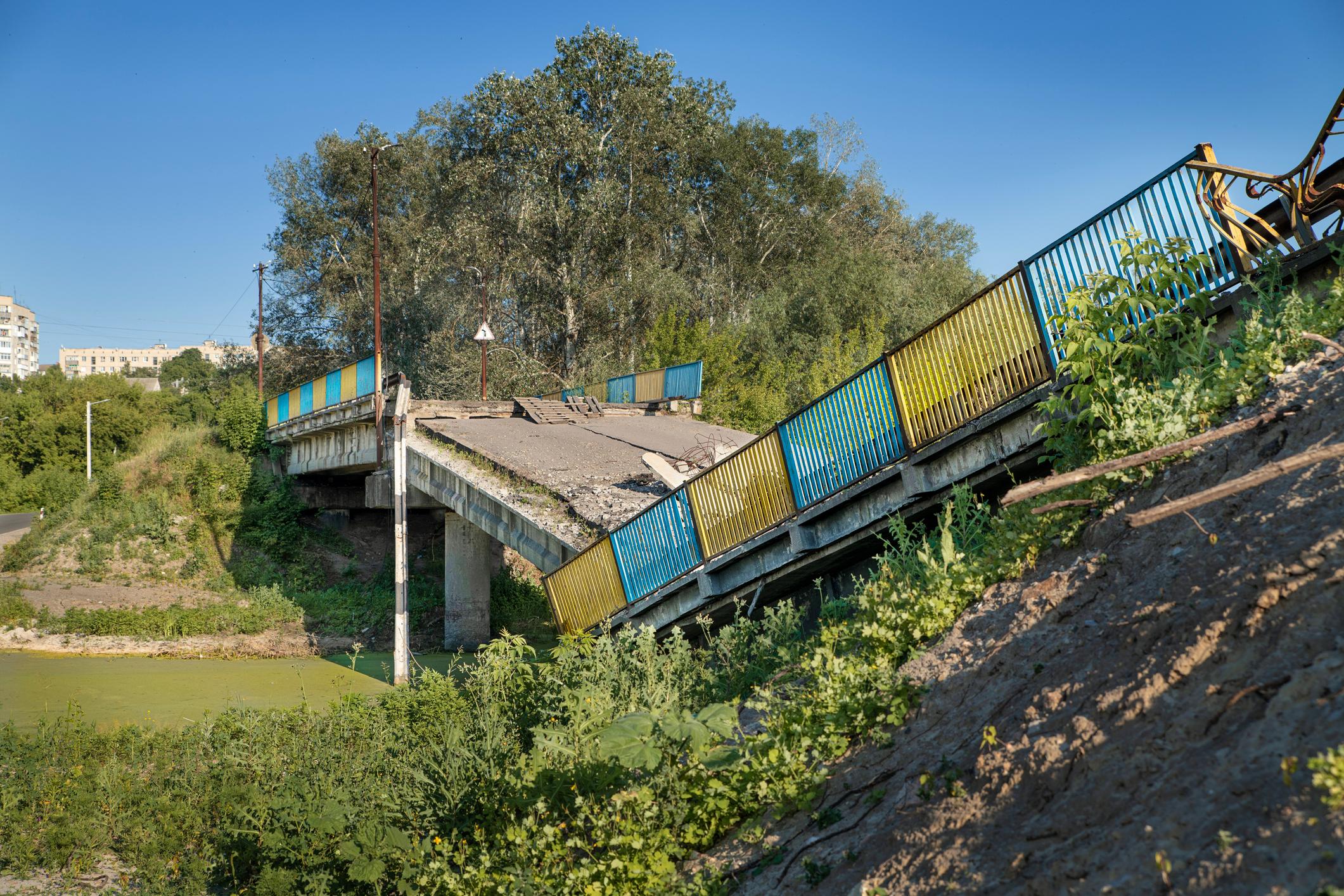Blog
Anti-corruption capacity in Ukraine’s local self-government

Decentralisation of governance has been a major success for Ukraine so far. It has created a system of local self-government (LSG) authorities with relative autonomy and resources for public service provision across 1,470 hromadas (municipalities). Every hromada has directly elected mayors and councils that jointly appoint accountable executive bodies, separate from district (rayon), regional (oblast), and national levels of government.
The introduction of martial law due to the Russian invasion has impacted some LSG operations. However, LSGs maintain their relative autonomy in local socio-economic development, and provide public services during wartime. This continued capacity is important. Because the Russian invasion has caused significant damage in the housing, energy, and social sectors, most reconstruction efforts will be in local communities. Ensuring that reconstruction is fair, efficient, and free from corruption is an increasingly important task for LSGs.
The November 2024 U4 Issue Advancing anti-corruption capacity in Ukraine’s local self-government by local government expert Oleksandra Keudel, demonstrates how there is an emerging assortment of credible anti-corruption practice at the LSG level that should benefit from further investment. The paper is based on interviews with practitioners in local governance, anti-corruption, and development, and hromada representatives. It highlights how anti-corruption capacity can progress at these levels to help safeguard the democratic outcomes of decentralisation reforms, even during the war.
Credible, sensitive, and innovative anti-corruption within local self-governance
While it is not easy to generalise, the evidence demonstrates how many local communities have strengthened their anti-corruption capacities since the Revolution of Dignity in 2013–2014. This has been underappreciated. The U4 Issue outlines the range of tools that LSGs have available to improve capacity, from anti-corruption officers and risk management instruments for increasing transparency, to open data and e-governance mechanisms: all entry points for further capacity development.
LSGs’ anti-corruption practice is often sensitive and innovative. LSGs have been at the forefront of public engagement and open government in Ukraine since 2014. LSG officials are integrated in their communities and often committed to the community’s prosperity. In smaller communities, officials may address integrity breaches to protect their reputation in response to formal complaints and corruption rumours. National and local non-governmental organisations have improved local integrity by being incorporated as watchdogs, facilitators, and partners. Sometimes, anti-corruption activists may join LSG executive bodies to implement reforms. LSGs have also experimented with innovative tools such as participatory budgets, multi-stakeholder platforms, and consultation mechanisms.
Investing in anti-corruption as protection from creeping re-centralisation
Despite this emerging capacity, there is an increasing challenge to decentralisation: concerned about corruption at local levels, the central government has sought to re-centralise powers and competences from LSG levels. For example, a recent draft law, no. 5655, attempted to transfer municipal planning rights to a centralised body under the premise of fighting corruption; it received pushback from the European Parliament and Ukrainian civil society. Centralisation is often justified by capacity arguments: because of administrative cohesion, central levels of government can enact stricter controls and processes.
While there may be a short-term rationale to these efficiency arguments, Dr Keudel argues that the narrative of centralisation to manage corruption risks is based on a false economy: the creeping re-centralisation of competences over the management of resources may unnecessarily undermine Ukraine’s democratic future. Considering a history of misusing anti-corruption to consolidate power in Ukraine before 2014, centralisation could strengthen authoritarian tendencies that are more difficult to tackle during war. Also, past cases of donor-driven reconstruction, which undermined local accountability by disempowering local authorities, show that centralisation in the name of efficiency has negative unintended consequences for state-building.
Dr Keudel argues that anti-corruption efforts must be aligned to Ukraine’s democratic state-building. Therefore, international partners and national and regional governments should recognise that further investment into anti-corruption at local levels in Ukraine is not an expense, but a credible investment in Ukraine’s democratic future.
Four priority areas to advance anti-corruption practice
The U4 Issue’s ideas for how to build capacity can be grouped around four strategic priorities:
1. Getting the framework in order: Clarify conflicting recovery and anti-corruption policies
Currently, the legal framework for recovery and reconstruction remains in flux due to the war. This complicates LSG operations and public monitoring. Overlapping planning documents, such as the mandatory ‘recovery and development plan for recovery territories’ and the optional ‘complex programme for recovery of the hromada territory’, create confusion for LSGs. These documents lack alignment with national, regional, and local sectoral strategies, and potentially hinder effective recovery.
Laws governing LSGs are not fully aligned with the newest anti-corruption legislation. For example, contradictions and confusion in conflict-of-interest policies affects policy implementation in areas such as schools and municipal enterprises where working dynasties are firmly part of the professional culture.
Establishing clear communication with ministries through the Ministry for Communities, Territories and Infrastructure Development of Ukraine could help clarify these frameworks.
2. Provide incentives to promote further transparency and external evaluation
Competition for external financial and material resources drives LSGs to adopt anti-corruption tools as evidence of trustworthiness to attract potential partners, such as donor investments and business links. For example, with increased humanitarian aid needs and occasional misuse reports, Ukrainian municipalities began voluntarily reporting aid on their websites and social media to demonstrate credibility. Some use Prozorro (the online procurement portal) or develop their own systems to report disaggregated data in machine-readable formats.
Transparency should continue to be a focus for anti-corruption cooperation. Further efforts must address the lack of transparency on municipal asset management, general decisions, procurement, and housing options to ensure that citizens can intervene before LSGs make policy choices.
3. Strengthen LSGs’ internal core
While outward anti-corruption, such as transparency, should continue to receive attention, resources and expertise are needed to support LSG institution-building on principles of integrity. This is not always incentivised: inward anti-corruption action – institutional redesign and corruption risk assessments (CRAs) – cannot be easily assessed from the outside. Therefore, these actions are rarely prioritised by LSGs due to resource constraints and the costliness of institutional change.
To do this, LSGs should work with the National Agency for Corruption Prevention, which offers tools for local CRAs, training on whistleblower protection, asset declaration, and conflict of interest policies. International cooperation partners could follow the example of the EU Anti-Corruption Initiative in supporting LSGs to redesign their processes and internal organisation.
4. Foster local cross-sectoral communication
Anti-corruption reforms at the local level in Ukraine often emerged as a byproduct of communication between professional groups across different sectors. In the cities, which demonstrated ‘political will’ to fight corruption, LSG officials, civil society experts, and business representatives often negotiated the institutional change in iterative rounds of communication. Such negotiated reforms help sustain them, even when relevant top-down regulations change.
International partners can use their resources and reputations to foster cross-sectoral communication by setting up platforms and places where it can occur. Such platforms would be needed for LSGs and their local stakeholders, and for structuring communication between the LSGs and the regional and national authorities. Fostering mutual accountability in such collaborative platforms is a necessary component of anti-corruption capacity support.
Disclaimer
All views in this text are the author(s)’, and may differ from the U4 partner agencies’ policies.
This work is licenced under a Creative Commons Attribution-NonCommercial-NoDerivatives 4.0 International licence (CC BY-NC-ND 4.0)


